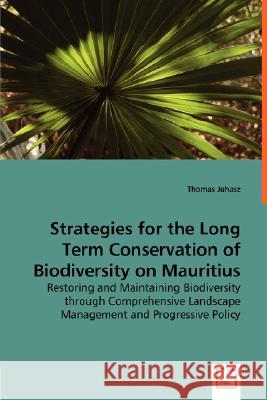Strategies for the Long Term Conservation of Biodiversity on Mauritius » książka
Strategies for the Long Term Conservation of Biodiversity on Mauritius
ISBN-13: 9783836476348 / Angielski / Miękka / 2008 / 68 str.
The loss of biodiversity is increasingly complex, with anthropogenic influences greatly enhancing the rate of this phenomenon. Mauritius, as an insular island, was profoundly affected by the colonization of humans. Much of the original fauna as wll as an unspecified number of plants went extinct shortly thereafter; what species which managed to survive were relegated to remote portions of the island such as mountaintops and islets. As human intervention attains ecological predominance in the new era of globalization, the comprehensive reevaluation of the relationship between human activity and ecosystem dynamics on heavily altered islands such as Mauritius can help achieve new solutions to prevent the continued loss of global biodiversity. The primary motivation behind this thesis is to analyze new methods of conservation which will help to transfrom the perception that an artificial delineation exists between the human and the natural spheres within a landscape. Mauritius is ideal to study this concept as what biodiversity remains is enveloped in a landscape of human activity. This thesis aims to identify needs and opportunities not typically associated with conservation measures.











